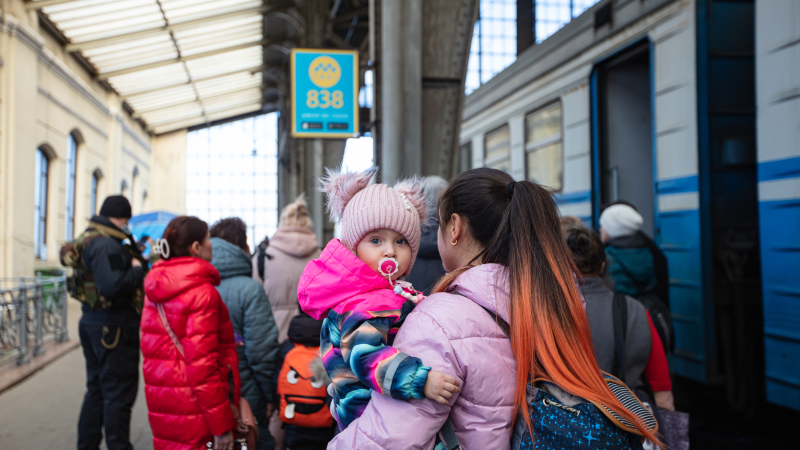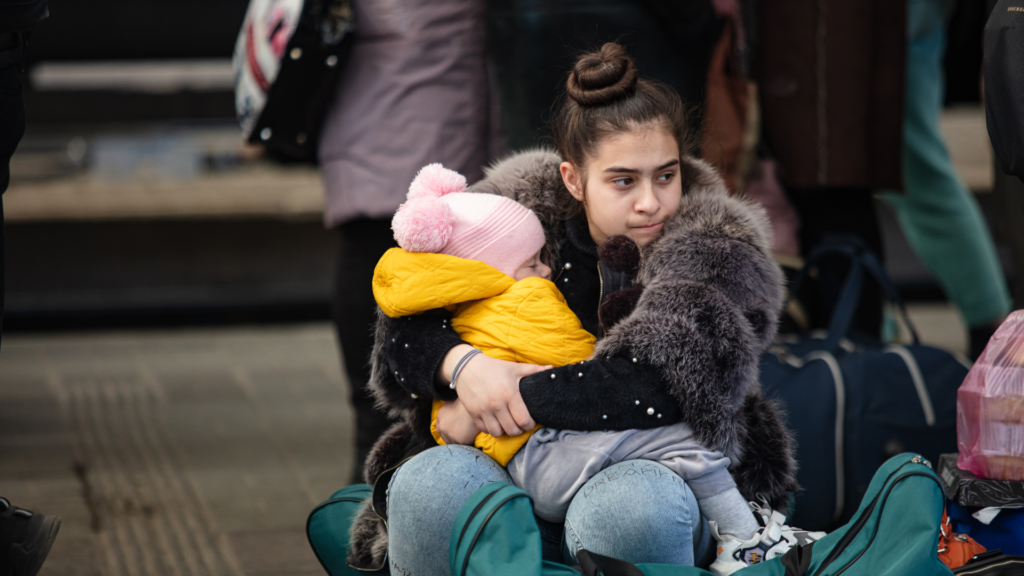While not fighting on the front line, Ukrainian children continue to feel the full repercussions of war and displacement. With no end of the war in sight, its impact will reverberate with generations to come - unless family-centred support is provided to children who have, or are at risk of, developmental delays.
At a recent event co-hosted by the European Association of Service providers for Persons with Disabilities (EASPD) and MEP Klemen Grošelj, Nazar Tanasyshyn (Deputy Minister of Social Policy of Ukraine), stated that an estimated 56% of children in Ukraine are in need of psychological support due to their experiences of the war. An estimated 46% of children have been diagnosed with some form of developmental delay or disability, with the stress of war increasing the occurrence of - and exacerbating - possible developmental delays. For these children and their families, access to quality, family-centred Early Childhood Intervention (ECI) services is crucial to promote their ongoing development.
Family-centred ECI provides individualised and intensive support for families with infants and young children between 0-6 years who are at risk of not reaching their full potential, experience developmental delays or have a disability, while their brain is characterised by high levels of plasticity and adaptability. ECI supports, coaches and mentors families in their ability to raise and support their child’s development in their daily life, and increases the family’s quality of life.
Ukrainian families seeking refuge in neighbouring European countries have often found ECI systems which are underdeveloped and already struggling to support families and children who are already residing in the country. Many of these national systems are hindered by weak legislative frameworks and strategic plans, a lack of sustainable funding and a shortfall in public training service systems for professionals working in the ECI sector. For refugee families trying to access ECI for their children, a lack of knowledge of the legislative systems, low financial resources and language barriers create additional challenges.
All this comes at a time when the European Union is increasing its focus on giving children who live in Europe the best start in life. Launched in 2021, the Child Guarantee aims to ensure that every child in Europe who is at risk of poverty or social exclusion has access to the most essential services, including healthcare and early childhood education and care. The recent increase in children in need of additional support has put a spotlight on the weakness on many of Europe’s ECI and social protection systems.
Since the outbreak of the full-scale invasion, EASPD, with the support of United Nations Children’s Fund (UNICEF) has led a humanitarian action to deliver emergency support to Ukrainian families with small children currently residing in Bulgaria, Romania, Moldova, Slovakia and Poland. Over the last 18 months the project has trained over 500 family consultants and 800 parents to deliver emergency early childhood development support to over 12,000 displaced Ukrainian children.
With the project coming to an end EASPD, MEP Klemen Grošelj hosted a roundtable to discuss emergency responses for children and families and how to promote the development of stronger ECI systems across Europe. Touching on his personal experiences of conflict, he remarked that children are often the forgotten victims of war with trauma lasting long after peace is achieved. With the complexity of navigating post-conflict societies, he stressed the need to consider the necessity of young children to minimise the long-lasting implications of war.
Within this context, EASPD has launched its Position Paper on ‘Early Childhood Intervention in the Context of Displacement’. The document calls on the EU to take leadership to support ECI system building in the member states but also in the countries aspiring to join the European community to ensure the best start in life for all children and thrive regardless of their circumstances. To do this the paper recommends that the EU:
- Ensure that ECI-related policies are highlighted as a fundamental element in policies on deinstitutionalisation, independent living, and Early Childhood Education and Care (ECEC).
- Improve awareness and knowledge on ECI, by fostering data collection on ECI policies and practices and the preparation of country ECI assessments.
- Mobilise EU financial instruments, including the European Social Fund Plus, the Technical Support Instrument, and pre-accession funds in supporting the shaping and strengthening of ECI policies and services. This funding can speed up the transition from traditional rehabilitation services to contemporary family-centred ECI and the creation of national ECI systems.
- Encourage Member state to use the EU Child Guarantee for developing research, services and systems on ECI, as demonstrated in the pilot phase in Croatia and Bulgaria, developed in cooperation with UNICEF.
You can read EASPD’s ‘Childhood Intervention (ECI) in the Context of Displacement’ position paper here.
Promoted by the European Association of Service providers for Persons with Disabilities (EASPD)


